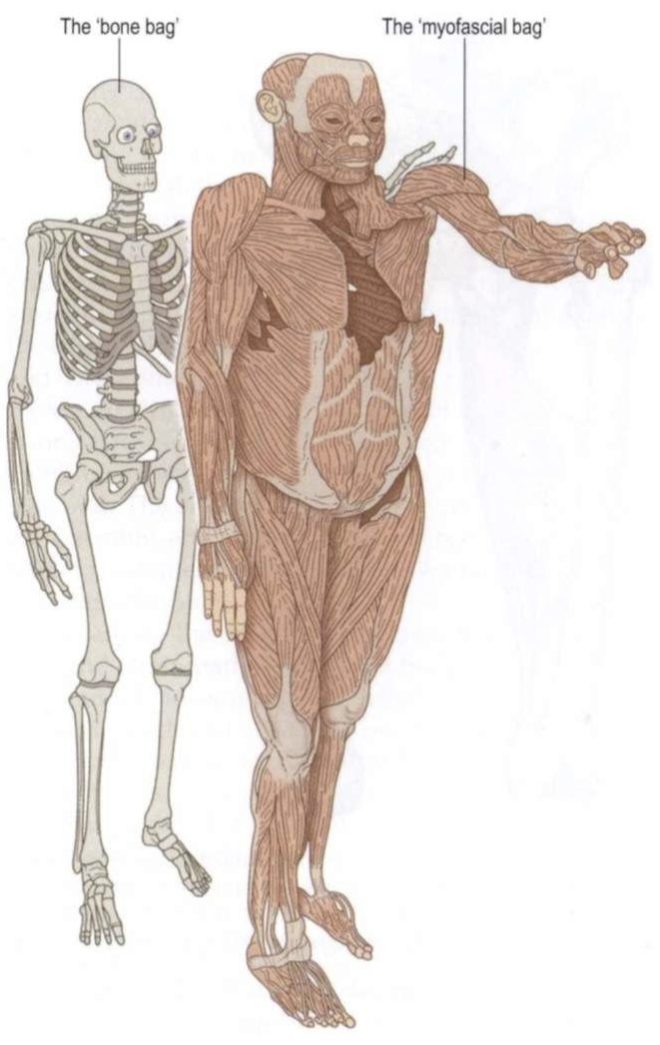STS.175 Laboratory Studies Lab (Special Fall 2015 Course, limited to 19 students)
Fascia Movement Research Lab (led by Prof. Joseph Dumit & Kevin O’Connor)
Science & Technology Studies (STS) is the study of how science, technology, and medicine change. Laboratory studies involves participant observation in research labs to understand how facts are negotiated, crafted, and made to travel. In this special session of STS.175, Dumit & O’Connor will be using a dance studio and our own bodies as experimental laboratories to explore contemporary medical, biological, therapeutic, and movement research into “fascia.” Fascia is often referred to as connective tissue and seen as simply wrapping muscles. But it is also an active, intelligent and communicative sensory organ enveloping, permeating and constituting the body. As the “fabric” of our form it shifts our perspective from a body made up of parts to the wholeness of the architecture holding them together. Fascia can be described as a biomatrix that surrounds everything in our bodies, connects everything, and yet paradoxically cleaves and separates everything.
This emergent set of anatomical claims stretches between communities of biologists, massage therapists, doctors, anatomist and pathologists as well as somatic practitioners and dancers (http://www.fasciacongress.org). In this experimental lab we will learn to read these different claims, written in a variety of technical languages. We will study the history and contemporary fights over fascia research, and we will experiment, play with, and cultivate a felt sense of different forms of fascia and fascia research. We will move with and create different exercises based on different writing and practices related to fascia. We will articulate what these different ways of describing fascia do to us, as they change (or not) our felt sense of moving through space. Our aim is to understand how the different disciplines, languages, practices, and experiences, relate to each other and lead to the creation of different experimental systems. We will learn to use STS to understand these dynamics.
The course is offered Wednesdays 3-6pm in Della Davidson Studio (in the Nelson Gallery / University Club). It is a 4-unit course with enrollment limited to 19. Sign up using CRN: 74174
 Please note that this is a movement-based course taught in a dance studio. No dance or athletic experience is necessary, but students should be prepared to move physically in specific and creative ways as well as to have physical contact with one another in order to move together. We will work interactively in duets, small groups and as a whole class, changing our form to suit the research practice.
Please note that this is a movement-based course taught in a dance studio. No dance or athletic experience is necessary, but students should be prepared to move physically in specific and creative ways as well as to have physical contact with one another in order to move together. We will work interactively in duets, small groups and as a whole class, changing our form to suit the research practice.
Classes will be three hours per week and will include discussion of readings and the practice of attentional and movement exercises aimed to reflect on and deepen appreciation of the readings. The general format of class will include: discussion of outside readings and attentional exercises (30-40 min), further collaborative physical/mental research utilizing new terms based on the homework (90 min), development of new practices and new terms (30 – 40 min) and further discussion of this work bridging into the assigned homework. Homework will include observational, experiential, reading, and writing exercises and their results will be discussed in class. A final research project will be of student’s design, developed and presented collaboratively in small groups with practical/performative and research/written elements.

We have written up a description of a similar lab we ran last year that we recommend you take a look at (we hope you’ll be inspired): The Senses and Sciences of Fascia
About the teachers: Joseph Dumit is a Professor of Science & Technology Studies, and Cultural Anthropology. He has conducted ethnographies of brain imaging, patient movements, pharmaceutical marketing, virtual environments, gaming, and is working on a project on comparative anatomies. He is also the Chair of Performance Studies and directs the Institute for Social Sciences. http://dumit.net/joe
Kevin O’Connor, MFA, is a multidisciplinary artist working as a choreographer, dancer, improviser, circus artist and installation artist. He has taught contact improvisation, axis syllabus, and many forms of dance, choreography and somatic based practices. He is currently completing a PhD in Performance Studies where he is researching anatomies, body performance capacities and imaginations, environmental activism, and community-based performances. http://performancestudies.ucdavis.edu/kevin-oconnor/
